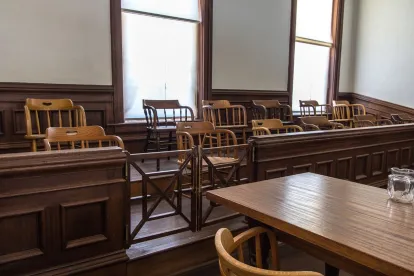Recent years’ events have inspired experiential and attitudinal changes among jurors across the board. The 2016 presidential election and the COVID-19 pandemic fostered a shift in attitudes about corporations, governmental agencies, and regulatory bodies. The #BlackLivesMatter movement and its associated protests across the US fostered a great divide amongst many key issues concerning policing and issues of race. The “Great Resignation,” an increased tendency for people to leave their jobs for other opportunities or for self-employment, has potentially complicated juror attitudes in employment cases ranging from discrimination to personal injury.
Such issues are compounded by increased polarization across many facets of life; now more than ever, jurors’ experiences and opinions have the potential to lead to bias against parties in your lawsuit. For these reasons, ensuring attorneys have as much relevant information about jurors prior to voir dire is crucial in identifying the jurors most adverse to your case.
One of the best tried-and-true methods to obtain such information is using a supplemental juror questionnaire (SJQ). However, our clients frequently note that it is difficult to know which topics to include on a juror questionnaire to elicit valuable responses. So, based on our experience working on hundreds—even thousands—of juror questionnaires, we offer the following recommendations.
Top 5 Topics for Supplemental Juror Questionnaires
1. CASE-RELEVANT EXPERIENCES
It is vital to include questions that identify jurors who have experiences that resemble the claims alleged by the plaintiff(s). For example, in a personal injury case involving a plaintiff who was hit by a commercial vehicle, a supplemental juror questionnaire should include questions about personal and vicarious experiences regarding vehicle accidents, injuries involving commercial vehicles, injuries due to negligence, or any other experiences that might be relevant to the case.
Ideally, there are only a few, if any, jurors with these types of relevant experiences. Nevertheless, identifying those jurors from the outset ensures that attorneys can identify and develop cause challenges long before exercising peremptory strikes and question jurors in private if warranted (and approved by the judge). Depending on the type of case, these jurors can sometimes be emotional or angry during voir dire, or, if trying to conceal their bias, they can be agreeable to one party while being short-tempered with the other.
2. GENERAL EXPERIENCES AND OPINIONS ABOUT THE INDUSTRY AND RELEVANT AGENCIES
Beyond case-relevant experiences, there may be jurors who come into jury selection with preexisting experiences and attitudes about the larger industry involved in the litigation (or, indeed, the parties themselves). For example, in a personal injury case involving a plaintiff who claims to have developed cancer or another serious illness because of a construction product they used, it would be important to identify whether jurors have preexisting negative attitudes about the parties, whether because of personal negative experiences with the party or a similar party, knowledge of previous lawsuits and/or associated opinions about the validity of those lawsuits, or general opinions of the specific industry due to other circumstances.
Many jurors also come into jury selection with preexisting attitudes about relevant agencies involved in the litigation (e.g., FDA, OSHA), which can greatly affect how they perceive the credibility of your evidence and arguments. Identifying these experiences and opinions can help attorneys better focus their voir dire efforts to develop optimal cause challenges or, in the case of a “stealth juror” who may wish to stay on a jury in order to further their personal agenda against a party, to allocate peremptory strikes.
3. GENERAL EXPERIENCES AND ATTITUDES ABOUT CORPORATIONS/SAFETY
In a supplemental juror questionnaire, attorneys should also seek to elicit jurors’ general experiences and attitudes about corporations and safety. Across all venues and case types, a substantial portion of the venire has anti-corporate views. Many jurors are skeptical of large corporations, often believing that they “put profits over people.” These opinions can also correspond with beliefs about corporations’ willingness to communicate matters of safety to the public and to relevant oversight agencies and can often lead jurors to start off favoring one side over the other. Similarly, asking about whether it is fair for individuals and corporations to be treated the same in a lawsuit can reveal bias against corporations and help develop cause challenges during voir dire.
4. LITIGATION ATTITUDES
General questions about litigation and the utility of lawsuits can further expose jurors who may be more favorable towards one side or the other. In a breach of contract case, knowing whether a juror would favor the plaintiff over the defendant (because they believe “a contract is a contract,” for example) can be valuable in identifying our least desirable jurors as soon as possible. These attitudes, in combination with case-specific experiences and attitudes serve to elicit cause challenges and maximize peremptory strikes during voir dire.
For personal injury cases, asking questions about jurors’ ability to set sympathy aside or whether they have preexisting opinions about lawsuits being good for the community can provide insight into identifying which jurors may be receptive to “Reptile” strategies. This can be very important in a case involving punitive damages, where jurors may consider “sending a message.”
5. DEMOGRAPHIC INFORMATION
Finally, a supplemental juror questionnaire should gather relevant demographic information, usually in the beginning sections. Age, date of birth, and gender can provide a good starting point. Asking for the city they live in, their occupation/employer, and their education level can then offer useful information for better locating jurors’ social media and online footprints, if social media searches will be conducted. Demographic information in general can paint a clearer picture of who the juror is, which can inform how to better determine peremptory strikes.
In Conclusion
The topics above are meant to create a starting point to develop a supplemental juror questionnaire that arms your trial team with maximum relevant information before selecting a jury. More information means your team can develop better cause challenges and use peremptory strikes on the jurors least receptive to your case, thereby maximizing your ability to achieve the best possible outcome for your client(s). Developing a supplemental juror questionnaire that accomplishes these goals ensures you can make the most of even the shortest voir dires.




 />i
/>i

